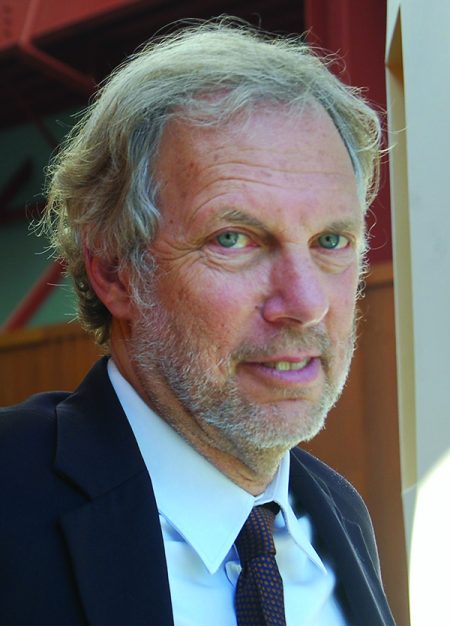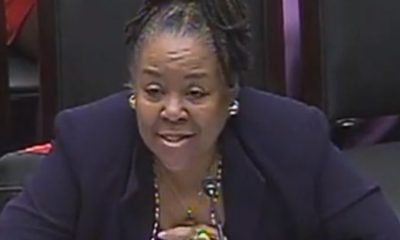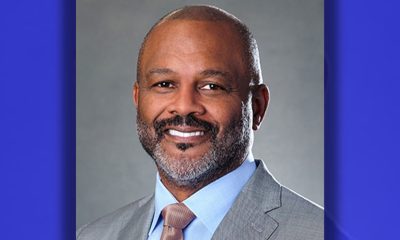Economics
State Could Create 1 Million New Jobs in Transition to Clean Economy
As California transitions to a greener economy, new jobs can be created while other jobs will be lost.

As California’s economy reopens, numerous labor union representatives at a news conference on June 10 demanded a safe and equitable transition to the green economy for workers.
Union members made their demands virtually at the conference, also sharing their thoughts on a new related report on California jobs by researchers at the University of Massachusetts at Amherst.
The research, led by economics professor Robert Pollin, says California can create 1 million new jobs a year through 2030 by investing in energy efficiency, clean renewable energy, manufacturing/infrastructure, and land restoration/agriculture.
“Our study shows how to get there,” Pollin said.
As California transitions to a greener economy, new jobs can be created while other jobs will be lost.
The report says $76 billion is needed to create 416,000 jobs in energy efficiency and clean renewable energy while $62 billion is needed to create 626,000 jobs in manufacturing/infrastructure and land restoration/agriculture.
Pollin said about 112,000 workers are employed in California’s fossil fuel and bioenergy industries and about 58,000 are expected to lose their jobs by 2030 as those two industries contract and coal use ends.
The damage may be most severe in Kern, Contra Costa, and Los Angeles counties, where 50% of all fossil fuel job losses will occur when the state’s fossil fuel industry contracts, according to the study.
But about 350,000 a year can be created with the investments that Pollin’s team suggests.
About 320,000 of those will be created in Los Angeles County.
Some of the money from the $138 billion to be invested would go toward helping those out of work train and relocate, if needed, to new jobs, according to the report.
About half or $70 billion of the total investment would come from public coffers while the other half would come from private investors.
If President Joseph Biden gets the American Jobs Plan passed, it could provide $40 billion a year for clean energy and infrastructure investments in California, covering about 60% of the $70 billion that may need to come from public funding.
“The Congressional THRIVE Agenda would provide about $100 billion per year for the clean energy, infrastructure/manufacturing and land restoration/agriculture programs we describe,” the researchers said.
Also, the state can borrow to supplement federal funding.
Union members who spoke at the news conference were excited about the prospect for 1 million new jobs, but they want them to be good-paying, union jobs.
Some union members were sober about the prospect of the fossil fuel industry coming to an end.
Norman Rogers, vice president of the United Steelworkers Local 675 said working at a refinery it’s hard not to see the writing on the wall with cars like the Prius and Teslas on the road.
“Now is the time for an equitable transition,” he said.
He wants to make sure workers nearing retirement, those at the mid-career level and newcomers are taken care of.
Dave Campbell, secretary-treasurer for Local 675, said they are prepared to take Pollin’s work to Gov. Gavin Newsom to discuss “securing the funding for this disaster relief and recovery package for fossil fuel workers, in this budget cycle.”
Activism
Oakland Post: Week of April 24 – 30, 2024
The printed Weekly Edition of the Oakland Post: Week of April 24 – 30, 2024

To enlarge your view of this issue, use the slider, magnifying glass icon or full page icon in the lower right corner of the browser window. ![]()
Business
Black Business Summit Focuses on Equity, Access and Data
The California African American Chamber of Commerce hosted its second annual “State of the California African American Economy Summit,” with the aim of bolstering Black economic influence through education and fellowship. Held Jan. 24 to Jan. 25 at the Westin Los Angeles Airport Hotel, the convention brought together some of the most influential Black business leaders, policy makers and economic thinkers in the state. The discussions focused on a wide range of economic topics pertinent to California’s African American business community, including policy, government contracts, and equity, and more.

By Solomon O. Smith, California Black Media
The California African American Chamber of Commerce hosted its second annual “State of the California African American Economy Summit,” with the aim of bolstering Black economic influence through education and fellowship.
Held Jan. 24 to Jan. 25 at the Westin Los Angeles Airport Hotel, the convention brought together some of the most influential Black business leaders, policy makers and economic thinkers in the state. The discussions focused on a wide range of economic topics pertinent to California’s African American business community, including policy, government contracts, and equity, and more.
Toks Omishakin, Secretary of the California State Transportation Agency (CALSTA) was a guest at the event. He told attendees about his department’s efforts to increase access for Black business owners.
“One thing I’m taking away from this for sure is we’re going to have to do a better job of connecting through your chambers of all these opportunities of billions of dollars that are coming down the pike. I’m honestly disappointed that people don’t know, so we’ll do better,” said Omishakin.
Lueathel Seawood, the president of the African American Chamber of Commerce of San Joaquin County, expressed frustration with obtaining federal contracts for small businesses, and completing the process. She observed that once a small business was certified as DBE, a Disadvantaged Business Enterprises, there was little help getting to the next step.
Omishakin admitted there is more work to be done to help them complete the process and include them in upcoming projects. However, the high-speed rail system expansion by the California High-Speed Rail Authority has set a goal of 30% participation from small businesses — only 10 percent is set aside for DBE.
The importance of Diversity, Equity and Inclusion (DEI) in economics was reinforced during the “State of the California Economy” talk led by author and economist Julianne Malveaux, and Anthony Asadullah Samad, Executive Director of the Mervyn Dymally African American Political and Economic Institute (MDAAPEI) at California State University, Dominguez Hills.
Assaults on DEI disproportionately affect women of color and Black women, according to Malveaux. When asked what role the loss of DEI might serve in economics, she suggested a more sinister purpose.
“The genesis of all this is anti-blackness. So, your question about how this fits into the economy is economic exclusion, that essentially has been promoted as public policy,” said Malveaux.
The most anticipated speaker at the event was Janice Bryant Howroyd known affectionately to her peers as “JBH.” She is one of the first Black women to run and own a multi-billion-dollar company. Her company ActOne Group, is one of the largest, and most recognized, hiring, staffing and human resources firms in the world. She is the author of “Acting Up” and has a profile on Forbes.
Chairman of the board of directors of the California African American Chamber of Commerce, Timothy Alan Simon, a lawyer and the first Black Appointments Secretary in the Office of the Governor of California, moderated. They discussed the state of Black entrepreneurship in the country and Howroyd gave advice to other business owners.
“We look to inspire and educate,” said Howroyd. “Inspiration is great but when I’ve got people’s attention, I want to teach them something.”
Activism
Oakland Post: Week of April 17 – 23, 2024
The printed Weekly Edition of the Oakland Post: Week of April 17 – 23, 2024

To enlarge your view of this issue, use the slider, magnifying glass icon or full page icon in the lower right corner of the browser window. ![]()
-

 Activism4 weeks ago
Activism4 weeks agoOakland Post: Week of March 27 – April 2, 2024
-

 #NNPA BlackPress4 weeks ago
#NNPA BlackPress4 weeks agoBeloved Actor and Activist Louis Cameron Gossett Jr. Dies at 87
-

 Community1 week ago
Community1 week agoFinancial Assistance Bill for Descendants of Enslaved Persons to Help Them Purchase, Own, or Maintain a Home
-

 Activism3 weeks ago
Activism3 weeks agoOakland Post: Week of April 3 – 6, 2024
-

 Business2 weeks ago
Business2 weeks agoV.P. Kamala Harris: Americans With Criminal Records Will Soon Be Eligible for SBA Loans
-

 Activism2 weeks ago
Activism2 weeks agoOakland Post: Week of April 10 – 16, 2024
-

 Community2 weeks ago
Community2 weeks agoAG Bonta Says Oakland School Leaders Should Comply with State Laws to Avoid ‘Disparate Harm’ When Closing or Merging Schools
-

 Community7 days ago
Community7 days agoOakland WNBA Player to be Inducted Into Hall of Fame

























































